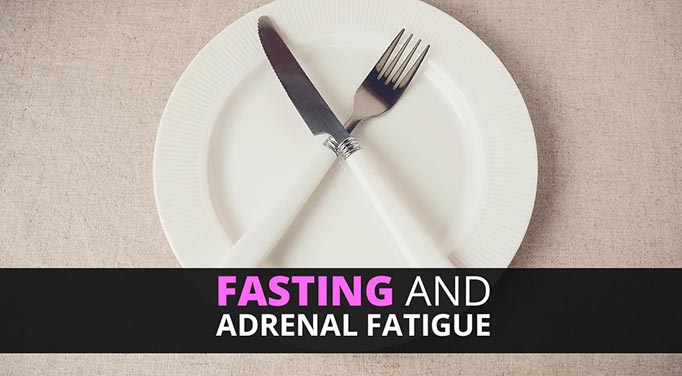 New research into diets that mimic fasting has proven to be promising for weight loss and other benefits of dieting. These diets are four-day reduced calorie diets that are remarkably similar to periodic fasting. Following this kind of diet decreased visceral belly fat and increased the number of progenitor and stem cells in aging mice. The cell results included cells in the brain where neural regeneration increased along with an increase in memory and learning ability.
New research into diets that mimic fasting has proven to be promising for weight loss and other benefits of dieting. These diets are four-day reduced calorie diets that are remarkably similar to periodic fasting. Following this kind of diet decreased visceral belly fat and increased the number of progenitor and stem cells in aging mice. The cell results included cells in the brain where neural regeneration increased along with an increase in memory and learning ability.
Yeast, mice, and humans were included in this study. Looking at the results with yeast showed the triggers of biological mechanisms that come with fasting. Results with mice showed the lifelong effects of these mechanisms. Findings that came with the human subjects showed the same mechanism applies to humans as to mice and yeast.
It appears that a four-day fasting-mimicking diet, such as a form of periodic fasting, brings about very significant health benefits for mice and humans.
In mice, the benefits included lowered risk of cancer, improved immune functioning, fewer inflammatory conditions, less bone mineral density loss, and improved cognitive functioning.
In humans, the benefits included fewer risk factors and biomarkers for diabetes, aging, cardiovascular illness conditions, and cancer with no significant side effects.
The diet used in the study was developed specifically because stricter fasting is hard for many people to stay with. In the diet, caloric intake was cut to 30% to 50% of normal consumption. A careful combination of micronutrients, fats, carbs, and proteins was established for the diet. This diet was developed to decrease the amount of the hormone IGF-1, which has been shown to promote aging and increase the risk of cancer. In this diet, the level of the hormone IGFBP was increased. It also decreased the risk factors associated with diabetes and cardiovascular disease. These risk factors included trunk fat, C-reactive protein, and glucose. It did not affect muscle or bone mass negatively.
Researchers said the diet is not one that people should stay on for long periods of time. Rather, periodic fasting with this diet appears to be beneficial. Using the diet is an effort to push your body to age more slowly and rejuvenate cells.
In this initial research, subjects were put on the diet for five days a month and allowed to return to their normal intake of calories for the other 25 days. Results continued even with the resumption of normal eating behavior.
Researchers say the diet can be used by most people every three to six months. For those who are significantly obese, the potential is for it to be used up to every two weeks, if their physician recommends it. Further clinical research is being conducted to determine whether the initial findings are supported on a longer-term basis.
Researchers cautioned that any fasting-mimicking diet should be undertaken only with medical supervision. The same is true with water-only diets, very low-calorie diets, and those that have high protein content. Diabetic subjects who are taking insulin, metformin, or similar medications should not undergo either fasting or fasting-mimicking diets. People with a BMI less than 18 should not do the fasting-mimicking diet.
 While fasting seems to have many health benefits, including increased longevity, this may not hold true absolutely with humans. Reducing caloric intake by 30% to 40% has been shown to increase longevity in some organisms, but a long-term study of rhesus monkeys did not show this to be true. However, caloric restriction has been shown to decrease the risk of developing many of the chronic illness conditions that appear all too often with aging. Limiting the intake of food may increase the number of years you spend in good health.
While fasting seems to have many health benefits, including increased longevity, this may not hold true absolutely with humans. Reducing caloric intake by 30% to 40% has been shown to increase longevity in some organisms, but a long-term study of rhesus monkeys did not show this to be true. However, caloric restriction has been shown to decrease the risk of developing many of the chronic illness conditions that appear all too often with aging. Limiting the intake of food may increase the number of years you spend in good health.
Long-term, uninterrupted, restricted caloric intake is difficult for many people to continue. Studies have shown periodic fasting to lead to the same health benefits. This procedure is much easier for most people to continue. Even when allowed to eat normally one day and fast the next, mice tend to consume fewer calories than when allowed unrestricted eating. The longevity benefits still accrue in these mice that are seen in rodents who are placed on a continuous calorie restriction diet.
In fact, one study showed mice placed on a periodic fasting diet to have more health benefits than those on continuous calorie restriction diets. One of the findings was lower levels of glucose and insulin in their blood, indicating increased sensitivity to insulin and lower risk of diabetes.
Research has shown intermittent or periodic fasting to lower the risk of developing degenerative brain diseases later in life. This kind of fasting seems to have a protective effect on neurons, protecting them from the effects of stress in rodents. A schedule of feeding every other day increased the rodent brain’s ability to handle toxins that bring on cellular damage similar to that faced with increased aging. Other studies also indicated periodic fasting to have a protective effect against stroke damage in rodents. It tends to lower motor deficits and slow the cognitive effects of neurodegenerative conditions.
Fasting of any kind is a stressor for your body. In the presence of any kind of stress, your body reacts by activation of the hypothalamic-pituitary-adrenal (HPA) axis. The end result of this activation is stimulation of the adrenal glands to secrete the hormone cortisol to fight the effects of stress. Under normal circumstances, once the stress is gone, there is less need for cortisol. However, under conditions of unrelenting stress, the adrenals become overwhelmed by the constant need for cortisol. The end result is AFS, a collection of sometimes vague symptoms that can eventually bring about very significantly negative health results.
The unfortunate fact is that most conventionally trained healthcare professionals don’t recognize AFS as a “real” condition. Due to their training, they attempt to remediate symptoms by dealing with them one at a time or with one isolated organ system. A better way to deal with AFS is through the NeuroEndoMetabolic (NEM) Stress Response model. This approach says there are six organ systems that are interdependent and interact to manage stress. What affects one affects others as well. The NEM model provides a more comprehensive and effective way of showing where symptoms are coming from and how to manage them.
 Because any kind of fasting is a stressor, if you suffer from AFS even periodic fasting can be dangerous. The effects of fasting on insulin and leptin levels, as well as other effects, can interact with the symptoms of AFS and make your condition worse.
Because any kind of fasting is a stressor, if you suffer from AFS even periodic fasting can be dangerous. The effects of fasting on insulin and leptin levels, as well as other effects, can interact with the symptoms of AFS and make your condition worse.
One of the mechanisms behind periodic fasting is its tendency to increase cortisol production. If your adrenals are already overwhelmed due to other stressors, you certainly don’t need to add another one to them.
The potential effects of periodic fasting on hormone levels is another reason not to undergo this process if you have AFS. In particular, the issue of estrogen dominance comes to the forefront. Fasting tends to increase levels of estrogen, and estrogen is needed for autophagy. But if you have a hormonal imbalance already, as is the case in many instances with AFS, you don’t need to add to that imbalance by increasing estrogen.
In short, periodic fasting is a wonderful tool for many people to lose weight and increase longevity. However, in the presence of AFS, it is contraindicated, as adrenal crashes can be triggered. The weaker the adrenals, the greater the risk. AFS sufferers usually have metabolic issues already. Frequent meals are often needed. Eating every 2-3 hours are commonly required to avoid symptoms of reactive hypoglycemia such as fatigue, irritability, anxiety, and heart palpitations. In addition to food, AFS sufferers need to be well hydrated. Any type of fasting must be avoided unless the body is well healed or under professional supervision.
© Copyright 2018 Michael Lam, M.D. All Rights Reserved.

